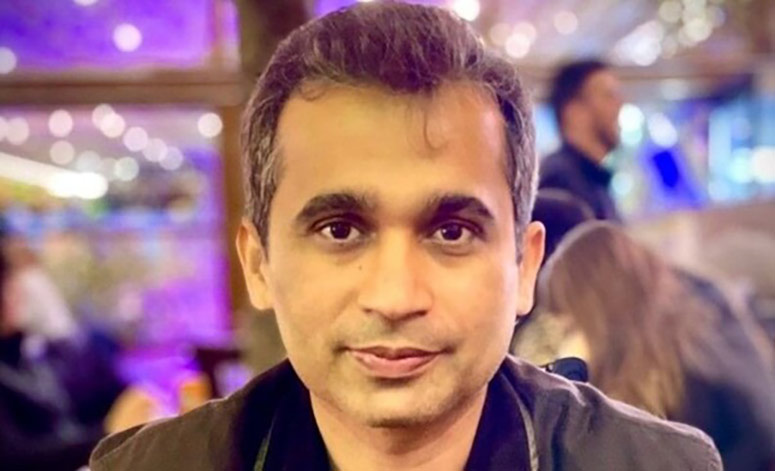
Dr Arif Naveed Education Prize 2026
About the prize
Dr Arif Naveed was a Pakistani social scientist with a deep commitment to promoting social justice and equality through the education system. Building on a successful career researching poverty and discrimination, he completed a Master’s degree in International Development at the University of Bath and an MPhil degree and a doctorate in Education at the University of Cambridge. Arif was awarded a prestigious Gates Cambridge scholarship for his PhD, and won the Bill Gates Sr Award in 2018.
Until his untimely death at the age of 42 in 2024, Arif focused on reconciling interdisciplinary tensions between economics, sociology and international development, between academic inquiry, policy formulations and their implementation on the ground, and between diverse methodological frameworks.
The award
His friends and colleagues are raising funds to create a prize in his name to be awarded to a current or past outstanding Master’s or doctorate student at the University of Cambridge. The award will be made on the basis of outstanding performance and the quality of an article published in an international peer-reviewed journal focusing on issues related to education, social justice and equality in a South Asian context. Candidates working on this theme could have completed their degree in any relevant discipline with this focus. Preference will be given to candidates who refer to Arif’s work in their publication.
An award of £1,000 will be made to the recipient of the prize.
Selection panel
There will be three members of the selection panel for the prize, with expertise of relevance to the prize. The proposed members include the Director of the Research for Equitable Access and Learning (REAL) Centre, a nominated Professor at the University of Cambridge with expertise in education, social justice and equality, and a senior University academic from South Asia.
The panel will define ‘outstanding’ in broad terms to include evidence from a range of sources:
- Publication of a substantial theoretical and/or empirical article in a high-quality peer reviewed journal (of not less than 6,000 words) indicating at least one of the following in relation to countries in South Asia:
- an original contribution to the field of education, social justice and equality
- a strong theoretical contribution to the field of education, social justice and equality
- indications of an innovative methodology or policy approach.
- Academic excellence, as identified by reference from supervisor or examiner of Master’s dissertation or doctoral thesis.
- Evidence of additional dissemination and/or impact of the research reported in the journal article (defined by, for example, dissemination activities, citation, take-up by policymakers, educational agencies and/or the education profession).
Eligibility
Those eligible for the prize include current Master’s or doctoral students at the University of Cambridge, or those who have successfully completed their Master’s or doctoral degree at the University of Cambridge within 5 years of the application deadline.
Applications
Applications are particularly encouraged from those from an under-represented background or location. Applications will be accepted from from individuals (self-nominated), or nominations from peers, supervisors or other colleagues.
Please submit a small portfolio (as one pdf document) which includes:
- a 2-page CV of nominee (including full name, nationality, topic, grade and date of the award of the Master's and/or doctorate at the University of Cambridge, as applicable; and Department or Faculty and College)
- reference from supervisor or examiner of Master’s dissertation or doctoral thesis, of relevance to the prize
- a PDF copy of the peer-reviewed journal article based on graduate research at Cambridge. (The article may have evidence of being accepted for publication but not yet published)
- document providing information on dissemination/impact of the research related to education, social justice and equality (no more than 2 pages).
Deadline
The deadline for applications is midnight (GMT) on 15 January 2026.
Applications should be submitted to: REALCentre@educ.cam.ac.uk with 'Arif Prize' in the subject title.
Please send any queries about the prize or process to: REALCentre@educ.cam.ac.uk
More about Dr Naveed’s research
Dr Arif Naveed’s research demonstrated his deep commitment to promoting social justice and equality through the education system. Some examples of his publications can be found here:
More snakes than ladders: Mass schooling, social closure, and the pursuit of Taraqqi (social mobility) in rural Pakistan
Naveed, A. September 2024. Rural Sociology, 89 (3).
Researching family lives, schooling and structural inequality in rural Punjab: The power of a Habitus Listening Guide
Naveed, A. 2024. In: Swartz, S., Singal, N. & Arnot, M. (eds) Educational research practice in Southern contexts: Recentring, reframing and reimagining methodological canons (pp.300-318). Chapter 17. Routledge.
Overriding social inequality? Educational aspirations versus the material realities of rural families in Pakistan
Naveed. A. 2021. In: Rose, P., Arnot, M., Jeffery, R. & Singal, N. (eds) Reforming education and challenging inequalities in Southern contexts research and policy in international development (pp. 123-139). Chapter 7. Routledge.
Wealth as an indicator of socio-economic welfare: Islamic views
Zaman, A., Naveed, A. & ur Rehman, A. September 2019. In: Ali, S. (eds) Towards a Maqāṣid al-Sharīʿah Index of Socio-economic development (pp.189-205). Palgrave Studies in Islamic Banking, Finance, and Economics. Palgrave Macmillan.
Happiness in Bangladesh: The role of religion and connectedness
Devine, J., Hinks, T. & Naveed, A. February 2019. Journal of Happiness Studies, 20, 351-371.
Exploring educational and social inequality through the polyphonic voices of the poor: A habitus listening guide for the analysis of family-schooling relations
Naveed, A., & Arnot, M. 2018. Comparative Education, 55 (2).
Geography of poverty in Pakistan – 2008-09 to 2012-13: Distribution, trends and explanations
Naveed, A., Wood, G. & Ghaus, U., August 2016. Pakistan Poverty Alleviation Fund & Sustainable Development Policy Institute.
Progress under scrutiny: Poverty reduction in Pakistan
Naveed, A., Khan, A. & Samman, E. October 2015. Overseas Development Institute.
Making ‘impact factor’ impactful: Universities, think tanks and policy research in Pakistan
Naveed, A. & Suleri, A. June 2015. Sustainable Development Policy Institute.
Educational outcomes across the generational and gender divide: the rural family habitus of Pakistani families living in poverty
Arnot, M. & Naveed, A. January 2015. Gender and Education, 26 (5).
Clustered deprivation-district profile of poverty in Pakistan
Naveed, A. & Ali, N. September 2012. Sustainable Development Policy Institute.
Connecting the dots: Education and religious discrimination in Pakistan - A study of public schools and madrassas
Hussain, A., Salim, A. & Naveed, A. November 2011. United States Commission on International Religious Freedom.
Estimating multidimensional poverty and identifying the poor in Pakistan: An alternative approach
Naveed, A. & Ul Islam, T. May 2010. RECOUP Working Paper No. 28. University of Cambridge.
Skill acquisition and the significance of informal training system in Pakistan - Some policy implications
Janjua, S. & Naveed, A. November 2009. RECOUP Policy Brief No. 7. University of Cambridge.
Financing education in Pakistan: The impact of public expenditure and aid on educational outcomes
Malik, R. & Naveed, A. April 2012. RECOUP Working Paper No. 42. University of Cambridge.

